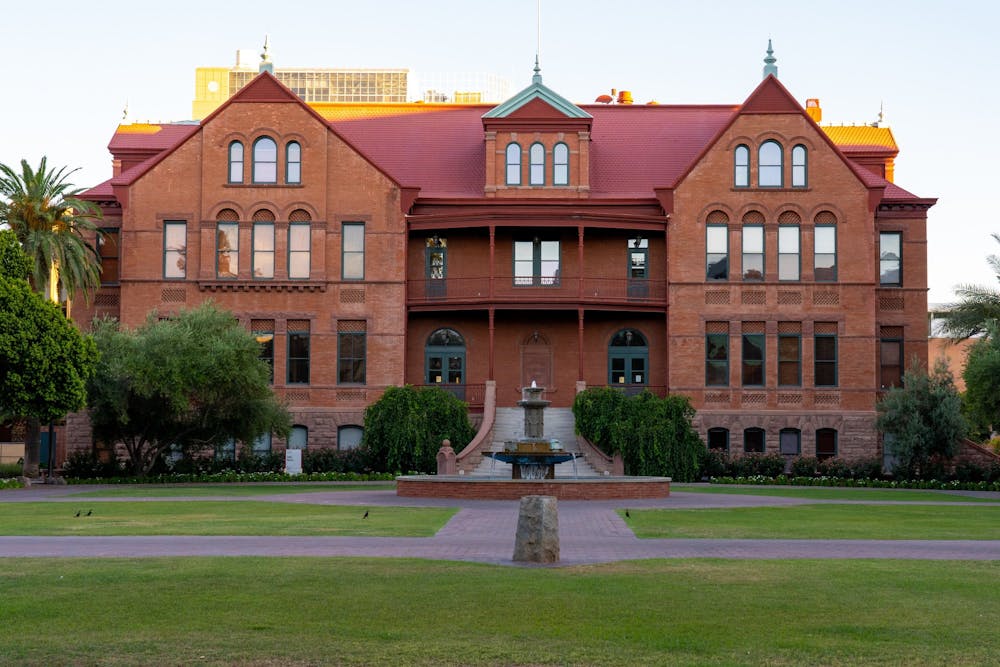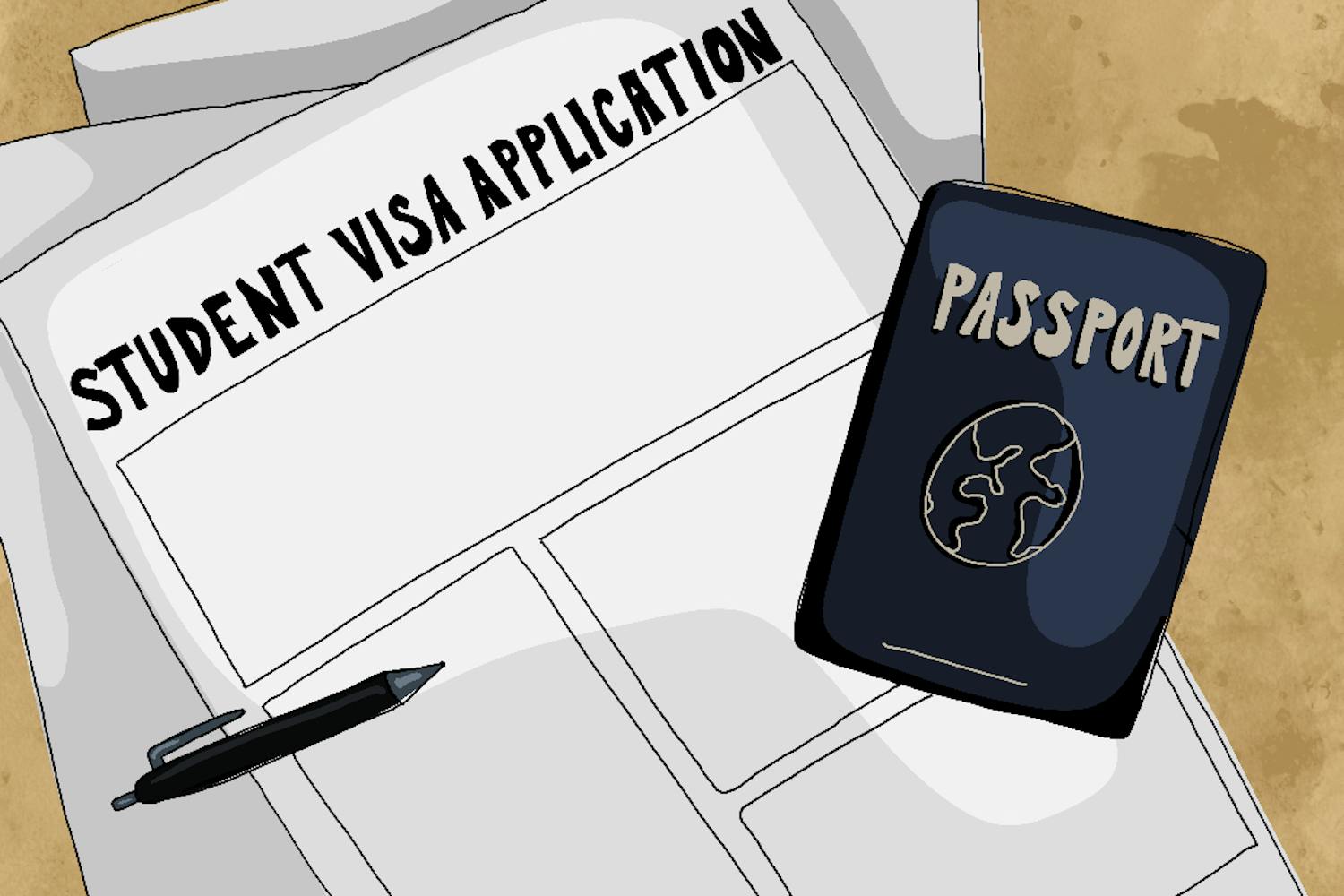The Steamboat Institute brought its "Campus Liberty Tour" to the University on Wednesday evening, with a debate on national debt triggering lively discussion both on the stage and in the audience.
The debate, co-hosted by the School of Civic and Economic Thought and Leadership, took place at 5 p.m. in the Carson Ballroom in Old Main.
Arguing the affirmative was Stephen Moore, an economist, author and economic adviser on President Donald Trump's 2016 campaign. Stephanie Kelton, a former chief economist for the U.S. Senate Budget Committee, argued the negative. They debated whether the national government should make the federal debt a fiscal priority.
The event lasted about an hour and was followed by about twenty minutes of audience questions.
The crowd consisted of several University students and other Arizona community members.
"One of the most important aspects of higher education is to foster civil discourse," said Sophia Thomason, a junior studying civic and economic thought and leadership. "To expose people to different perspectives, to challenge your mindset and to just practice what it is to have a discussion."
In favor of lowering debt was Moore, declaring that the national debt should be prioritized by the U.S. government.
"Everybody knows that we can't keep doing what we're doing right now. It's really dangerous to continue to borrow $2 trillion a year," Moore said. "We have to reduce our deficit. It is a responsibility for children and grandchildren and the future generation."
Kelton was arguing the negative: lowering national debt does not need to be prioritized by the government.
"Paying down the debt means turning on the vacuum cleaner and hovering those dollars off of our balance sheets and shrinking our financial wealth," Kelton said. "Why on earth would anyone want to prioritize shrinking the financial surplus of the nongovernment part of the economy?"
The economists debated several policies while on stage, including inflation, tariffs and the recession stemming from the COVID-19 pandemic.
In Kelton's argument, she said the government's financial deficit was really a financial surplus, keeping the private sector afloat. She said the national debt was misleadingly named to instill fear.
"We call it a deficit because we're only looking at it from the perspective of the government's budget," Kelton said. "But if you look at it from the perspective of a nongovernment part of the economy, that's our financial surplus."
In response, Moore mentioned former President Joe Biden's spending and said it resulted in increased inflation.
"What we did was essentially spend all this money," Moore said. "And the victims of this were American people."
Hannah Falvey, a senior studying civic and economic thought and leadership, said she appreciated how both sides of the debate were able to come to minor agreements throughout their discussion, exemplifying conversational behaviors for observing students.
"The moments when they both could acknowledge that what the other parties said made a lot of sense and that they could agree upon, those were probably the most exciting moments," Falvey said. "It was always factually based and not ... making a tax on the other person, but really speaking, idea to idea."
Though the debate resulted in some conclusions from its speakers, other times were more tense as subjects like the current presidential administration and partisan politics were brought to the floor.
Thomason said the lively nature of the debate topics made it more engaging.
For Falvey, she said she appreciated that the debate topic was more controversial for a University-sponsored event. She also said it promoted more critical thought between the speakers and their audience.
"Oftentimes, even when we do have debates, they're kind of sanitized and they pick uncontroversial topics or ones that they think will be less provocative," Falvey said. "The fact that they didn't shy away from such an important one, especially for a college campus ... is really inspiring."
Similar to Falvey, Kelton said it's crucial to have discussions about national debt and the economy, which is why she participated.
"It's important to have the conversation at a university where people are supposed to spend time wrestling with ideas that aren't obvious or comfortable all the time, to bring new ways of thinking, to challenge preconceived notions about how things work," Kelton said.
The winning side was Kelton, who argued the negative, with the verdict determined by an audience poll taken after closing statements.
Before the debate started, the audience was polled at 37% agreeing with the affirmative and 46% disagreeing. After the debate, the audience polled at about 25% in agreement and 65% in disagreement.
"Obviously, at the end of the day, there isn't going to be a clear consensus," Falvey said. "But just having a model of how conversations should occur, and also being incorporated as a student and getting to ask our questions as well, is a really wonderful opportunity."
Edited by Alysa Horton, Abigail Beck and Katrina Michalak.
Reach the reporter at ehprest1@asu.edu and follow @ellis_reports on X.
Like The State Press on Facebook and follow @statepress on X.
Ellis is a sophomore studying journalism and mass communication. This is her first semester with The State Press. She has also worked at Arizona PBS and Blaze Radio.




